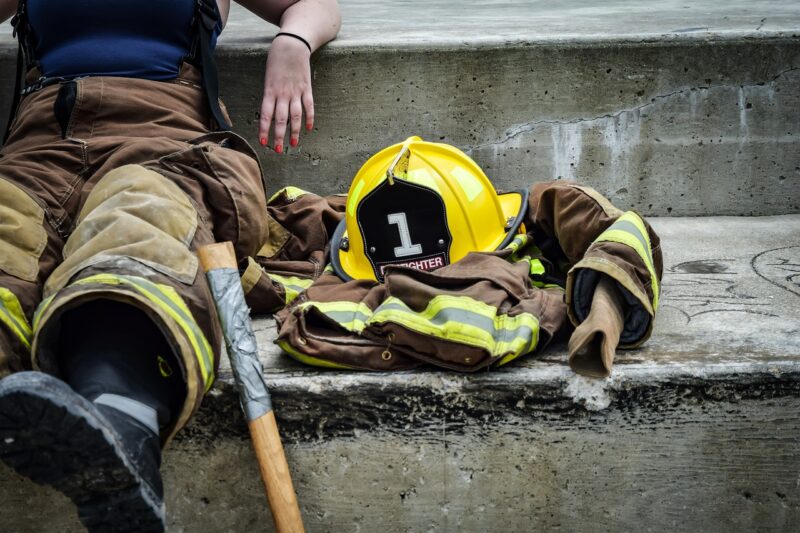Firefighter Fitness and Health: What It Takes to Stay in Top Shape for the Job
November 13, 2024

Firefighting is not just about battling flames; it demands a level of physical fitness and mental resilience that few other professions require. Firefighters are often faced with life-threatening situations where their strength, endurance, and agility can mean the difference between life and death – for themselves and the people they strive to protect. In this article, we will delve into the aspects of firefighter fitness and health, understanding what it takes to stay in top shape for the demanding job.
1. The Importance of Physical Fitness in Firefighting
Physical fitness is paramount for firefighters. The nature of the job requires them to lift heavy equipment, carry individuals to safety, and navigate hazardous environments. Performances depend significantly on their physical health. Here’s why fitness is essential:
- Enhanced Endurance: Firefighters often face prolonged emergencies. A good level of endurance allows them to perform effectively – sometimes for hours at a time.
- Strength for Lifting and Carrying: The ability to lift heavy equipment and rescue victims is crucial. Fitness training focuses on building core strength and upper body power.
- Speed and Agility: Quick decisions and agility can lead to successful rescues. Physical training enhances reaction time and coordination as well as the ability to navigate dangerous environments quickly.
- Injury Prevention: A well-structured fitness regime can significantly reduce the likelihood of injuries on the job. Stronger muscles and flexible joints are less prone to strain and damage during intensive activities.
Having a robust fitness routine prepares firefighters to face emergencies with confidence and skill, benefiting not only themselves but the communities they serve.
2. Key Components of Firefighter Fitness
To maintain optimal fitness levels, firefighters should focus on several key components:
a. Cardiovascular Fitness
Cardiovascular endurance is critical for firefighters, who may have to exert themselves for long periods. Effective training includes:
- Running – Interval training and long-distance running build stamina and improve heart health.
- Cycling – Low-impact cardiovascular exercise strengthens the legs and improves endurance.
- Swimming – A full-body workout that enhances lung capacity and muscle strength without putting stress on the joints.
b. Strength Training
Building strength is essential, particularly in the upper body and core. Recommended exercises include:
- Weightlifting – Focusing on fundamental lifts like squats, deadlifts, and bench presses enhances overall strength.
- Bodyweight Exercises – Push-ups, pull-ups, and planks prepare the body to handle heavier gear and elevate resilience against fatigue.
- Functional Training – Utilizing tools such as kettlebells or resistance bands helps replicate movements that firefighters perform while on duty.
c. Flexibility and Mobility
Flexibility is critical for preventing injuries, allowing firefighters to move more efficiently. Activities such as:
- Yoga – Improves flexibility, resilience, and mental focus.
- Dynamic Stretching – Incorporating dynamic stretches before workouts increases range of motion and prepares muscles for action.
d. Agility and Speed Training
Quick reflexes can save lives. Integrating agility ladders, cone drills, and sprint intervals into a workout regimen promotes speed and coordination.
3. Nutrition: Fueling the Firefighter Body
Proper nutrition plays a vital role in a firefighter’s fitness and overall health. Firefighters require a balanced diet that fuels energy, aids recovery, and enhances performance. Consider the following:
a. Macronutrients
Macronutrients include carbohydrates, proteins, and fats. Firefighters should consume:
- Carbohydrates: Complex carbohydrates like whole grains, fruits, and vegetables provide essential energy needed for intense physical work.
- Proteins: Lean proteins like chicken, fish, and legumes are crucial for muscle recovery and growth after training sessions.
- Fats: Healthy fats from nuts, seeds, and avocados support cell function and energy reserves.
b. Hydration
Staying well-hydrated is essential, especially when firefighting involves high temperatures and exhaustive physical tasks. Firefighters should:
- Drink water throughout the day and especially before, during, and after workouts or emergencies.
- Incorporate electrolyte drinks during intense workouts to replenish lost minerals and fluids.
c. Meal Timing
Strategic meal timing can optimize energy levels and recovery. Firefighters should:
- Eat balanced meals 2-3 hours before workouts for optimal energy.
- Consume a meal or snack high in protein and carbs after intense activity to promote recovery.
4. Mental Health and Resilience
Firefighting is not only physically demanding but emotionally taxing as well. Maintaining mental health is crucial. Here are strategies for resilience:
- Regular Counseling: Engaging with mental health professionals helps firefighters manage stress, cope with trauma, and maintain psychological well-being.
- Peer Support: Developing strong relationships with colleagues fosters camaraderie and offers an essential emotional support system.
- Stress-Relief Techniques: Practicing mindfulness, yoga, or meditation promotes relaxation and enhances focus, reducing stress levels during both work and downtime.
Mental resilience is just as important as physical preparedness, affecting performance and the ability to handle emergencies.
5. Conclusion: Creating a Comprehensive Fitness Program
To thrive as a firefighter requires a holistic approach to fitness and health. By concentrating on cardiovascular conditioning, strength training, nutrition, and mental well-being, firefighters can prepare their bodies and minds for the challenges they face daily. Individuals interested in pursuing a career in firefighting or current professionals seeking to enhance their fitness routines should consider implementing an actionable fitness program that addresses all aspects of health. Setting achievable goals, consistently evaluating fitness progress, and focusing on balanced health practices will lead to better performance on the job, ensuring they can serve their communities effectively and safely.
Firefighter fitness goes beyond the physical – it’s an integration of body, mind, and nutrition, forging capable and resilient heroes ready to answer the call of duty.







